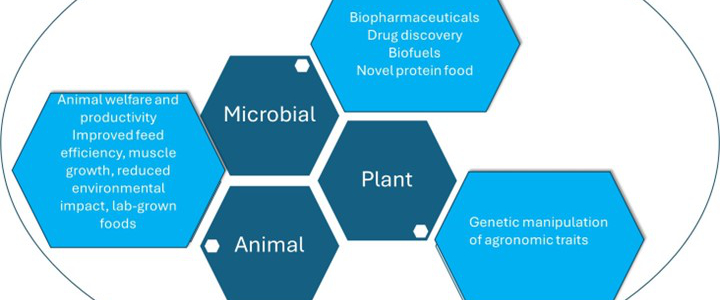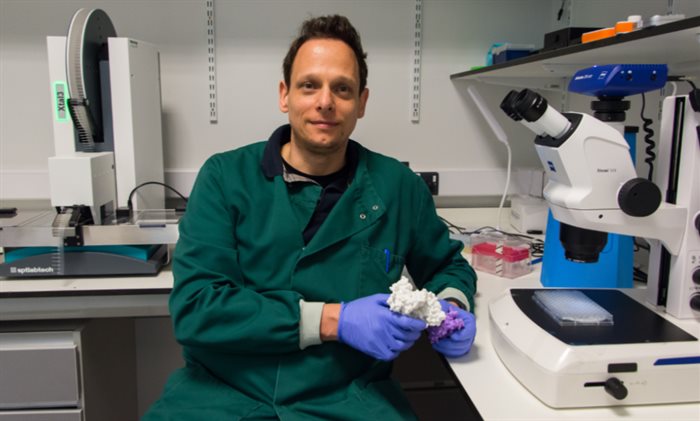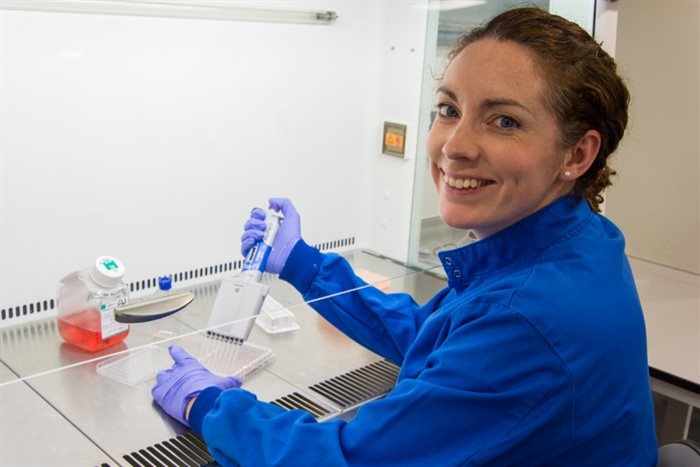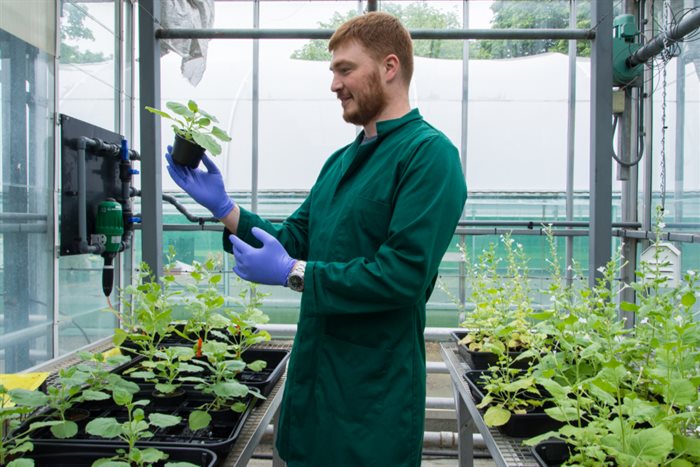
Biotechnology
The School of Biosciences, located at the Sutton Bonington campus of the University of Nottingham, is a leading hub for research in biotechnology.
We have centres of excellence in integrative systems biology and a centre for large animal biotechnology (CeLAB). Research facilities across campus are equipped with cutting-edge CL2 laboratories, fluorescent microscopy, live imaging, tissue and cell culture, fermentation facilities, analytical chemistry, protein crystallization suites, artificial insemination as well as technologies for reproductive biotechnology.
Research themes fall under three major areas:
Each of these three biological systems are used as tools, cell factories and model systems for applications across the food and beverage, human and veterinary medicine, and environmental sectors.
We employ a variety of expression organisms for recombinant protein production, including both eukaryotic and prokaryotic systems such as mammalian cells, yeast, E. coli, insect cells and plant, to evaluate the best systems for protein yield and functional studies.
Our team partners with external companies, focusing on enhancing biological processes for industrial applications. Key areas of study include bioprocess optimization, developing advanced fermentation technologies, and applying metabolic engineering across life sciences. Industrial Biotechnology focuses on the use of biological resources for producing and processing materials, chemicals, and energy. Areas of research include bioprospecting in drug discovery and biofuels, recombinant protein production of therapeutics/vaccines, novel protein food and enzymes for biocatalysis.
Built on this expertise we train Biotechnologists with a research-led curriculum offering BSc, MSci, MSc, and Research degrees. We also support research fellowships in Biotechnology and welcome enquiries.
Our Courses
Technologies
- gene editing
- assisted reproduction
- stem cell technologies,
- genomic evaluation and selection
- bioinformatics
- AI
- systems biology
- epigenetics
- structural biology
- bioprocessing
- CRISPR
- systems biology
- proteomics
Research Teams

Research teams in Microbial Biotechnology concentrate on leveraging microbial systems for diverse applications, particularly in the realms of bioactive compound discovery from actinobacteria and utilizing computational and structural approaches to protein engineering to achieve desired health-related properties. Key areas of investigation include:
- Development of therapeutic proteins, optimizing production processes and designing sustainable biosolutions.
- Identifying novel protein sources using heterologous and non-heterologous systems.
- Creation of diagnostic and therapeutic solutions targeting Neglected Tropical Diseases and newly emerging viruses.
- Development of novel vaccines.
Academic leads:
Animal Biotechnology

The Animal Biotechnology research teams are dedicated to advancing the productivity and welfare of farm animals, while also developing models that enhance our understanding of human development and disease. Their research focuses on leveraging reproductive biotechnologies, such as Somatic Cell Nuclear Transfer (SCNT), alongside genomic resources and tools, to deepen insights into animal growth and development. Achievements in these domains are critical to meeting the rising global demand for animal protein, thus playing a pivotal role in ensuring Global Food Security.
Academic leads:
Plant Biotechnology

Plant Biotechnology research focuses on enhancing crop resilience and productivity through various advanced techniques. This includes genetic modification for crop improvement, bio-based product synthesis, and metabolic engineering to increase efficiency and yield. The research spans diverse themes such as using plants as biofactories to produce high-value proteins like vaccines and antibodies, employing plant viruses to develop new biotechnological tools, and applying computer vision and AI for bioscience data analysis. It also involves studying neo-tetraploids through genetic modification and phenotyping, transcriptomics and ionomics, and generating knock-out fungi to understand fungal disease and symbiosis. Additionally, recombinant protein expression and genetic engineering are used to develop novel insecticides, while gene cloning and CRISPR techniques elucidate plant hormone regulation for environmental resilience. The research further delves into the genetic and biochemical regulation of plant hormones, understanding photosynthesis and photoprotection, and genetically engineering both the plant nuclear and plant chloroplast genomes.
Academic leads: